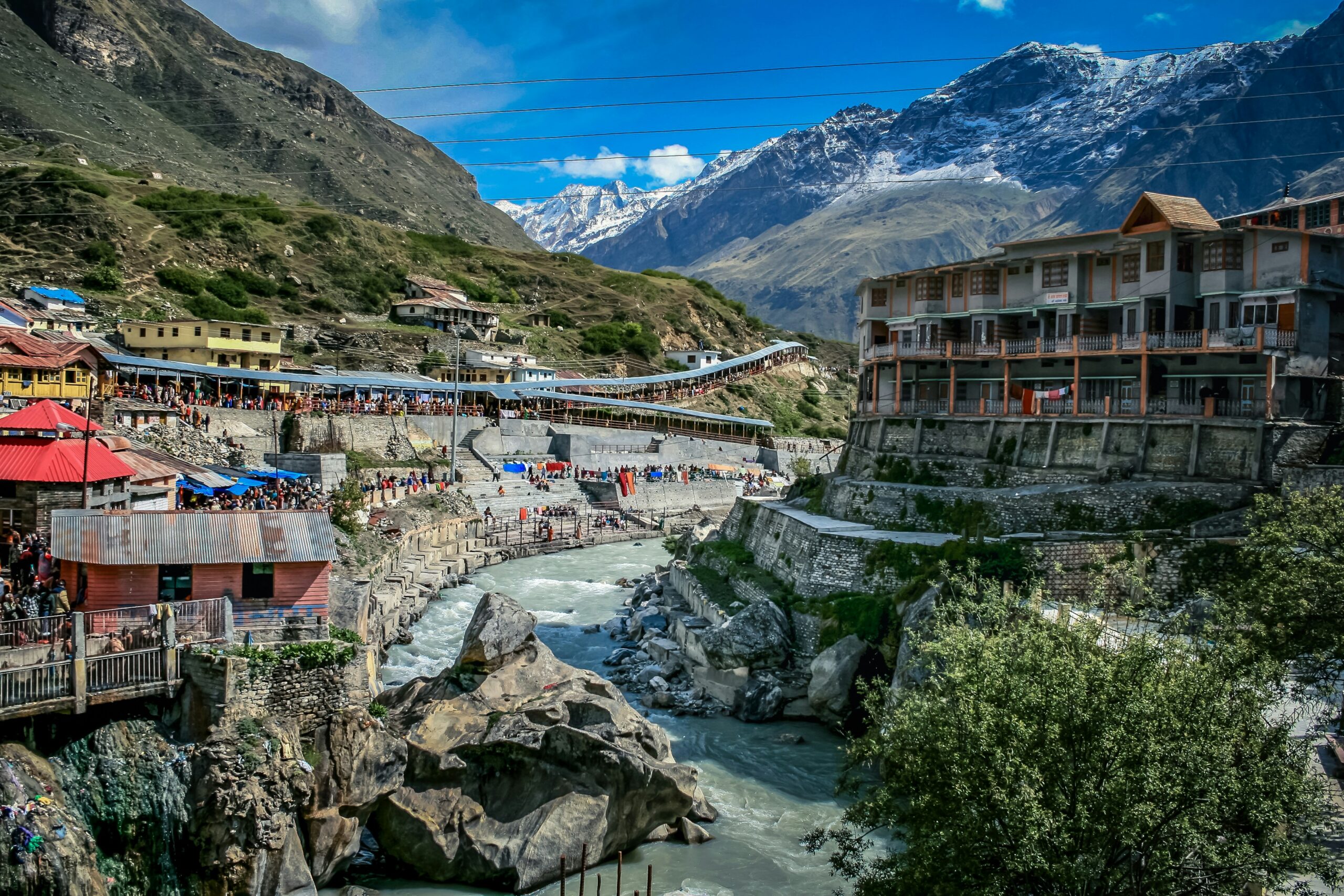For many older adults, India’s independence story carries a weight that younger generations can barely imagine. It’s not just history found in textbooks; it’s a living memory woven through family stories, faded photographs, and the echoes of voices that once filled the air with hope and determination. Some may have parents or grandparents who lived through those momentous years, while others might remember the early decades of independent India themselves.
Reading about this transformative era offers something profound for mature readers. It’s a chance to reconnect with the values, struggles, and dreams that shaped modern India. These books provide not just information, but a bridge between personal memory and national history, helping readers understand how their own family stories fit into the larger narrative of a nation’s birth.
Whether you’re seeking a meaningful personal read, searching for the perfect Independence Day gift, or looking to share India’s story with someone who appreciates its full significance, these carefully selected books offer the depth, accessibility, and emotional resonance that mature readers value.
Why These Books Resonate with Older Readers
Personal Connection: Many older adults have heard firsthand accounts from family members who witnessed independence and partition, making these historical narratives feel immediate and personal rather than distant.
Lived Context: Readers who experienced post-independence India can connect historical events with their own memories of how those decisions affected daily life, politics, and society.
Appreciation for Complexity: Mature readers often appreciate nuanced perspectives that acknowledge the difficult trade-offs, unintended consequences, and ongoing challenges that followed independence.
Reflective Reading: These books invite contemplation about how past decisions continue to influence contemporary India, offering opportunities for meaningful reflection on progress and ongoing challenges.
Our Top 5 Thoughtfully Selected Recommendations
1. “India After Gandhi” by Ramachandra Guha
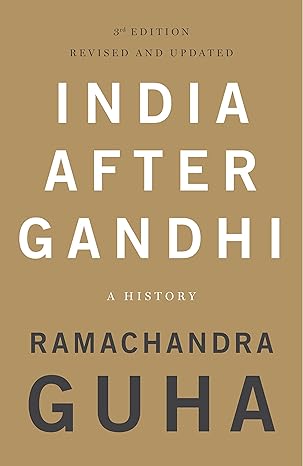
This critically acclaimed masterwork covers India’s remarkable journey from 1947 onward, tracing the challenges and triumphs that followed independence. Guha masterfully blends political history with personal stories, making complex events accessible and engaging for readers who may have lived through portions of this era.
The book doesn’t shy away from difficult topics like partition’s aftermath, political conflicts, and social challenges, but presents them with the nuanced perspective that mature readers appreciate. It’s particularly powerful for those who remember the leaders and events Guha discusses, offering fresh insights into familiar names and moments.
Explore “India After Gandhi” →
2. “Freedom at Midnight” by Dominique Lapierre & Larry Collins
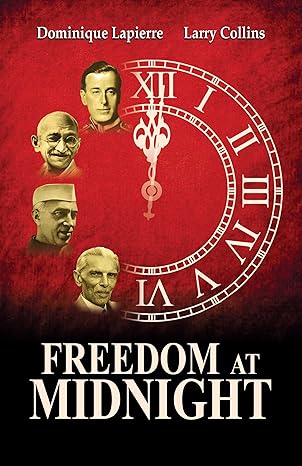
This timeless classic vividly narrates the dramatic events leading up to independence, capturing both the monumental political decisions and the deeply human stories of ordinary people caught in extraordinary times. The authors’ masterful storytelling brings 1947 to life with emotional depth and historical accuracy.
For older readers, this book offers the kind of rich, detailed narrative that makes history feel immediate and real. It’s perfect for those who appreciate thorough research presented through compelling storytelling, and it provides context for family stories and memories that may have been passed down through generations.
3. The Other Side of Silence: Voices from the Partition of India
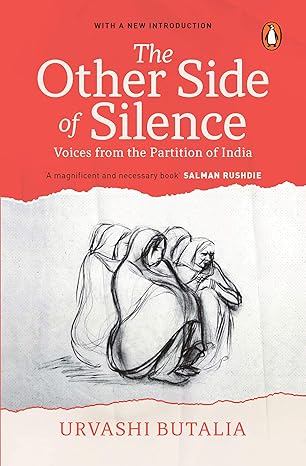
he partition of India in 1947 caused one of the most harrowing human convulsions in history: over twelve million people were displaced amidst a frenzy of murder, rape and abduction on a massive scale. For decades these violent realities remained buried in silence, even though the memories of brutality never faded. Urvashi Butalia’s The Other Side of Silence was the first major work to exhume the personal trauma of the Partition. An undisputed classic, it meticulously locates the individual experiences and private pain at the heart of this cataclysmic event. Furthermore, Butalia reveals how people on the margins of history—children, women, ordinary people, the lower castes, the untouchables—were affected by this upheaval.
In a passionate and stimulating new introduction, Butalia examines not only recent developments in the expanding field of Partition studies but also the heart-breaking ways in which this colossal tragedy continues to impact our lives and what this means for the future of the Indian subcontinent.
Discover “The Other Side of Silence: Voices from the Partition of India”
4. “Peace, Poverty and Betrayal: A New History of British India” by Roderick Matthews
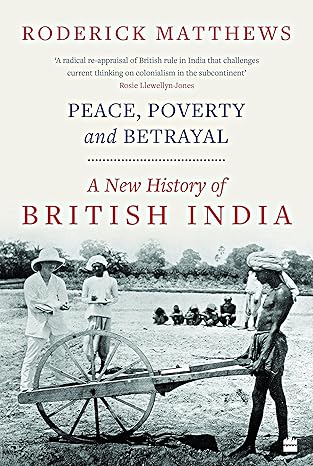
How can we explain Britain’s long rule in India beyond the cliches of ‘imperial’ versus ‘nationalist’ interpretations? In this new history, Roderick Matthews tells a more nuanced story of ‘oblige and rule’, the foundation of common purpose between colonisers and powerful Indians.Peace, Poverty and Betrayal argues that this was more a state of being than a system: British policy was never clear or consistent; the East India Company went from a manifestly incompetent ruler to, arguably, the world’s first liberal government; and among British and Indians alike there were both progressive and conservative attitudes to colonisation. Matthews skilfully illustrates that this very diversity and ambiguity of British-Indian relations also drove the social changes that led to the struggle for independence.Skewering the simplistic binaries that often dominate the debate, Peace, Poverty and Betrayal is a fresh and elegant history of British India.
Peace, Poverty and Betrayal: A New History of British India
5. “The Great Partition: The Making of India and Pakistan” by Yasmin Khan
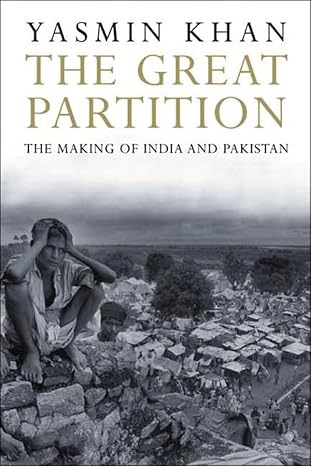
Clear, well-researched, and deeply human, this book helps readers understand the complexity of partition while maintaining an engaging narrative for general audiences. Khan combines scholarly rigor with accessible writing, making this difficult topic approachable without oversimplifying its complexity.
For older readers, this book provides crucial context for understanding one of the most traumatic yet transformative events in South Asian history. It’s particularly valuable for those seeking to understand how partition’s legacy continues to influence contemporary relationships and politics.
See “The Great Partition” details →
What Makes These Books Perfect for Older Adults
Accessible Formats: All these titles are available in large print and digital editions, accommodating different reading preferences and needs.
Balanced Perspectives: These authors focus on factual narratives and human stories rather than political propaganda, appealing to readers who appreciate objectivity and nuance.
Nostalgic Resonance: Many older readers will recognize names, places, and events from family stories or their own memories, creating powerful connections between personal and national history.
Gift-Worthy Appeal: These books make meaningful presents for Independence Day, retirement celebrations, or anyone building a personal library of significant historical works.
Thoughtful Gifting Suggestions
When sharing these books with older adults, consider adding personal touches that enhance the reading experience. A bookmark featuring the Indian tricolour, a handwritten note explaining why you chose this particular book, or for digital gifts, clear instructions for easy access can make the gesture even more meaningful.
These books also work wonderfully as conversation starters for families wanting to discuss how historical events affected their own ancestors and communities.
The Lasting Value of Historical Perspective
For older adults, reading about independence isn’t just about learning new facts; it’s about seeing familiar stories from fresh angles and understanding how personal experiences fit into larger historical patterns. These books help mature readers appreciate both how far India has come and the ongoing relevance of the values and struggles that defined the independence era.
Ready to explore more age-appropriate recommendations?
- Best Indian History Books for Pre-Teens (Ages 9-12) →
- Best Indian History Books for Teens (Ages 13-19) →
- Best Indian History Books for Men →
- Best Indian History Books for Women →

